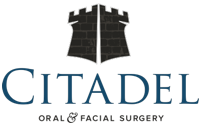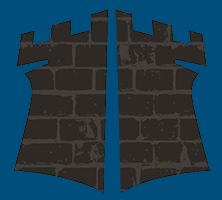Wisdom Teeth
By the age of 18 to 25 years, the average adult has 32 teeth: 16 teeth on the top and 16 teeth on the bottom. Each tooth in the mouth has a specific name and function. The teeth in the front of the mouth (incisors, canine, and bicuspid teeth) are ideal for grasping and biting food into smaller pieces. The back teeth (molar teeth) are used to grind food up into a consistency suitable for swallowing.
Unfortunately the average mouth is made to hold only 28 teeth. There can be problems when 32 teeth try to fit in a mouth that holds only 28 teeth. These four other teeth are your third molars, also known as "wisdom teeth", or occasionally referred to by dental professionals as "8′s", referring to the 8th tooth back in each corner of the mouth.
Why Should I Have My Wisdom Teeth Removed?
Wisdom teeth are the last teeth to erupt within the mouth. When they align properly, gum tissue is healthy, and you are able to maintain them well (brush, floss, etc) wisdom teeth do not have to be removed. Unfortunately, this does not generally happen. The extraction of wisdom teeth is often recommended when they are prevented from properly erupting within the mouth. They may grow sideways, partially emerge from the gum, and even remain trapped beneath the gum and bone. These teeth are then said to be 'impacted'. Impacted teeth can take many positions in the jaw as they attempt to find a pathway that will allow them to successfully erupt.
These poorly positioned impacted teeth can cause many problems. When they are partially erupted, the opening around the teeth allows food and bacteria to get trapped and carries a high risk of eventual and repeated episodes of pain, infection, swelling, and stiffness. These infections can be very serious. Long term, both gum disease and cavities necessitating their removal are common due to an inability to properly cleanse the area. Occasionally even the teeth in front of the wisdom teeth may be compromised due to adjacent disease. The pressure from the erupting wisdom teeth, although not common, may move other teeth and disrupt the orthodontic or natural alignment of teeth. They may also interfere with future orthodontic treatment. Another serious problem occurs when tumours or cysts form around the impacted wisdom teeth, resulting in the destruction of the jawbone and healthy teeth. Luckily this is not common.
Even erupted wisdom teeth, those that have come all the way through the gums, frequently lead to problems. Ones that have no opposing tooth to bite against tend to continue erupting and lead to problems with biting onto the gums of the opposite jaw. All erupted wisdom teeth, due to their location so far back in the mouth and the resultant difficulty in cleaning them, tend to be at an increased risk of gum disease and cavities, and have been shown to increase the risk of gum disease on the adjacent teeth as well.
Removal of the offending impacted teeth usually resolves all of these problems. Early removal is usually recommended to avoid such future problems, including damage to the adjacent healthy teeth, and to minimize the surgical risk involved with the procedure. As you enter adulthood, the risk of the surgery tends to increase and the expected ease of recovery and ability too heal both decrease.
Consultation
With an oral examination and x-rays of the mouth, your Citadel surgeon can evaluate the position of the wisdom teeth and whether any current pathology (disease) exists. Also, an estimate of the risk of future problems with the teeth can be made. Studies have shown that early evaluation and treatment result in a superior outcome for the patient. Patients are generally first evaluated in the mid-teenage years by their dentist, orthodontist or by an oral and maxillofacial surgeon. From the discussion with your specialist you can decide whether you feel you would benefit from having your wisdom teeth removed, the anaesthesia options will be discussed, and all of your questions and concerns will be addressed. At this appointment you may be given an antibiotic prescription to begin prior to your procedure.
What Is The Procedure Like?
All surgery is performed under appropriate anaesthesia to maximize your comfort. All of our surgeons have the training, license and experience to provide various types of anaesthesia for patients to select the best alternative. In most cases, the removal of wisdom teeth is performed under I.V. sedation. In some cases, only local anaesthesia may be selected, or perhaps in more difficult cases or for optimal patient comfort general anaesthesia.
If the teeth are impacted, a small incision is made to expose them, and often some bone overlying the impacted teeth needs to be removed. Special instruments are used to mobilize and remove the teeth, which occasionally need to be sectioned to allow their removal. Dissolvable stitches are frequently placed upon completion. Surgery typically lasts between 20 and 40 minutes, not including the time for being sedated or put to sleep. Once completed, you will rest under our supervision in the office until you are ready to be taken home. You can expect to spend approximately 2 hours at our office if sedated (I.V. sedation), and 3 to 4 in total if being put to sleep (general anaesthesia).
What Can I Expect After Surgery?
Upon discharge, your postoperative kit will include postoperative instructions, prescription(s) for pain medication, and possibly antibiotics. Following removal of impacted teeth, you can typically expect some discomfort and swelling that increase for a couple of days prior to subsiding. You may also notice some difficulty swallowing or opening your mouth, and you could have some facial bruising. Plan on eating a soft diet for several days. Everybody's body responds differently to surgery of the jaws, and the amount of discomfort, swelling, bruising and length of recovery are highly variable. To maximize your recovery and reduce complications carefully follow the post-operative instructions provided by your surgeon or nurse.
Depending on the nature of your occupation and degree of difficulty of the surgery, plan to take at least one day off after your procedure, though often two or three days are needed for the average person with impacted wisdom teeth. Following this you may very well still have some discomfort and swelling for several more days, but it should be easily tolerable with the recommended medications. Remember that everyone's individual speed and ease of recovery is different. In general, the upper teeth involve minimal recovery compared with lower impacted wisdom teeth.
We typically do not need to bring you back for a follow-up appointment unless a problem arises. However, if you have any questions, please do not hesitate to call us.
What Complications Can Occur?
Although any surgery carries some risk of complications, none are expected. The healing of the wounds created from the surgery depends on the ability of your body to heal and the care that you take. A minor infection, longer-than-expected discomfort, or 'dry socket' can occur in a small percentage of patients, but are all easily treated with minimal disruption. You will be given instructions on preventing, recognizing and treating these problems following your procedure. They are also available for viewing on this web site.
Serious infection or bleeding may occur with any surgery, possibly requiring further surgery or hospital treatment, but is very infrequent. An unknown allergy or adverse reaction to a medication used during anaesthesia or surgery can also happen, but fortunately is very uncommon. Occasionally injury to the adjacent tooth or a filling on that tooth may occur, or a piece of tooth or tooth root left in place, either unknowingly or on purpose. These are rare occurrences. If the tooth is in the lower jaw, you may rarely have persistent numbness to the lower lip, jaw or tongue due to the proximity of the nerves. Should an increased risk of this injury be identified, you will be informed and another type of x-ray may be recommended. If the tooth being removed is in the upper jaw, a 'hole' into the sinus may result, possibly requiring further surgery. This complication is also rare. In extremely unusual cases, a broken jaw may even occur during or after surgery, but your surgeon will often be able to tell if you are at any significant risk of this prior to surgery. Your surgeon will carefully assess your individual situation and discuss these and other risks with you before the procedure is performed.
You must be aware of all these risks to make an informed decision, however keep in mind that that vast majority of time this surgery is quite routine and the recovery is without complication. Also remember that most of these complications are less when you are young, which is one reason to consider preventative removal of these teeth. Please discuss any concerns at the time of your consultation.
How Should I Prepare For Surgery?
It is very important that you review the pre-op instructions prior to any anaesthesia or procedure. We also strongly encourage you to review the post-op instructions for after your surgery to be familiar with your care at home and allow you to ask any specific care questions prior to your surgery.

